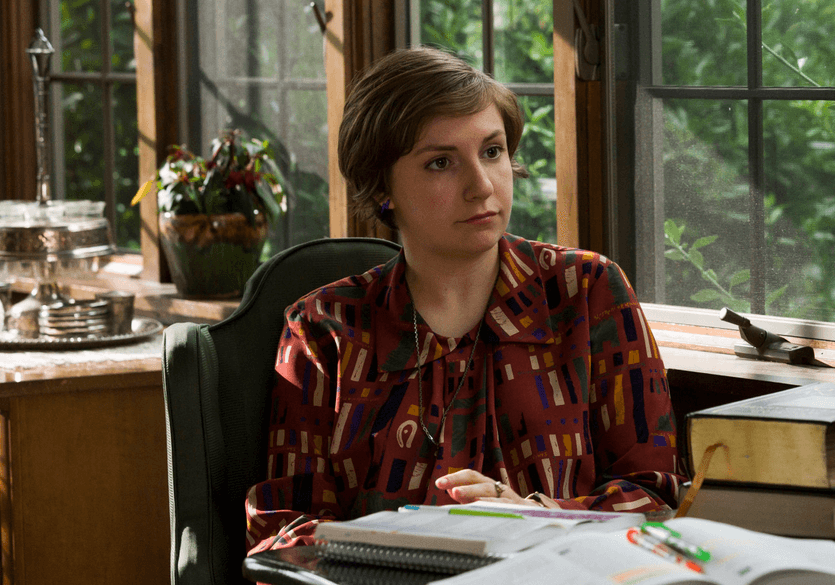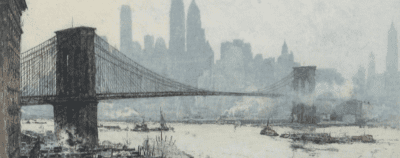2014 in Literary Controversies
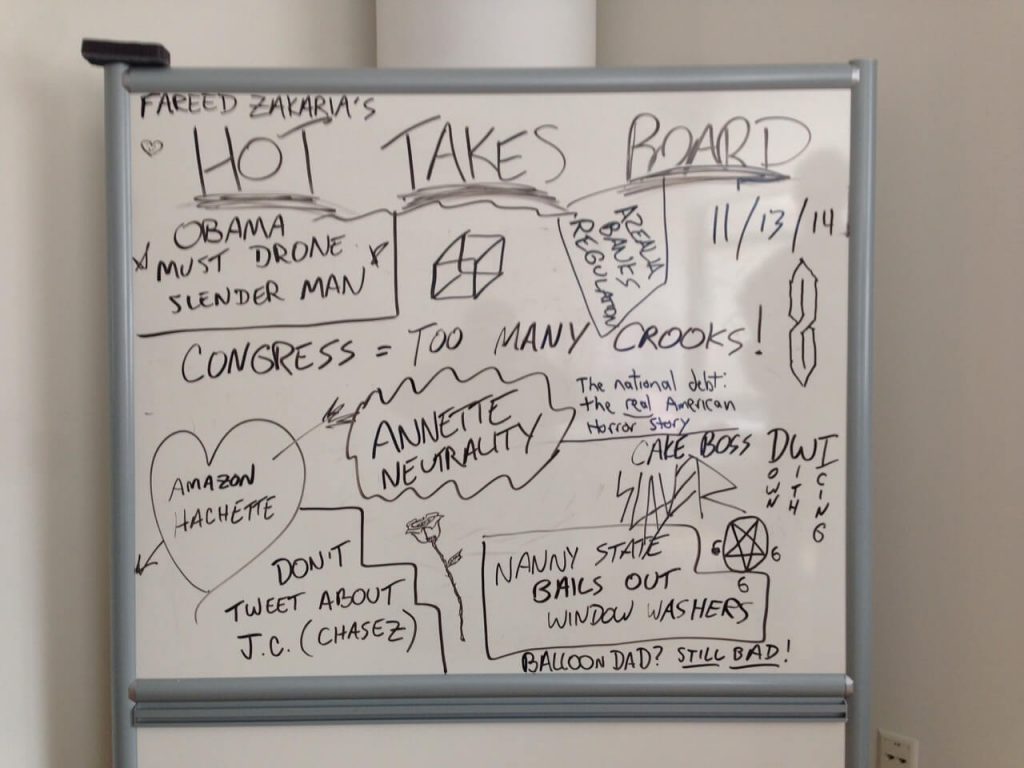
(image via the Racket Teen tumblr)
Another year, another batch of feuds, squabbles, and offenses in the literary world, from the petty to the troubling. This year had a share of controversies in the book world, from the recent implosion of The New Republic to the uproar over various aspects of Lena Dunham’s memoir to the awful racist joke Daniel Handler snuck in during his turn hosting the National Book Awards. Here, your year in literary uproar.
Knausgaard, anti-Knausgaard, post-Knausgaard, Knausgaard-wave
http://instagram.com/p/odqNlPisiA/
Sometime roughly around May of this year, the literary world lost their collective minds over the autobiographical work of one Karl Ove Knausgaard. This spring marked the English publication of volume three of his, enormous six-volume, 3,600-page work My Struggle, inspiring a Franzen-ish frenzy around the author and his work. The New York Times declared Knausgaard to be “a movement;” the line for his reading at McNally Jackson wrapped around the block. But, of course, with any rapid ascent to the heights of literary fame, there will be backlash. And backlash there was, from The Nation and Slate, where Katie Roiphe asked, “What if My Struggle Was Written By A Woman?” with the implied conclusion that no one would be quite as enthused about the confessional tome.
Jennifer Weiner and genre fiction bias


(courtesy Jennifer Weiner)
In January 2014, the New Yorker‘s Rebecca Mead published a profile of Jennifer Weiner, reigniting a conversation that the author and unabashed critic of many book-reviewing organizations had been a part of for years: As Weiner put it to the Huffington Post, “How can anyone claim the paper plays fair when genre fiction that men read gets reviewed but genre fiction that women read doesn’t exist on the paper’s review pages?” Weiner’s point being that institutions like The New York Times Book Review and The New York Review of Books are giving commercial fiction short shrift in their pages, and that some of that is attributable to deeply entrenched sexism. And then everything got fixed and no one has to talk about it again! Right, guys? Right?
Kathleen Hale and the catfishing


(via @halekathleen)
Young adult author Kathleen Hale wrote an essay in the Guardian about tracking down a pseudonymous book blogger who gave her debut novel, No One Else Can Have You, a nasty review. And then social media went completely nuts about it. There were hashtags, there were thinkpieces, there were hot, hot takes. Most of them were about the relationship with the author and the reviewer, ethics in journalism (no but really), and when Internet feuds spill over into real life.
There is no justification for stalking. I fully support #HaleNo
— Kelly (@divabooknerd) October 21, 2014
Why would any blogger want to review a book published by @HarperCollins when one of their authors could stalk and attack a reviewer? #HaleNo
— Katiebabs (@katiebabs) November 15, 2014
Ed Champion-gate, parts 1 and 2


Book reviewer and blogger Ed Champion was a frequent flashpoint on literary twitter this year. In July, Champion published a 11,000-word rant/screed focusing his ire on Friendship author Emily Gould, venting his rage against a group of women in publishing and media he dubbed “Middling Millennials.” He was excoriated for it on Twitter. Champion then stepped back from social media and threatened to throw himself off a bridge, which was also awful. The whole affair was titled “The great literary subtweet war of 2014” by Daily Dot, which has a much longer summary of the mess, too.
But that wasn’t the last we had heard of Champion for the year. In September, Champion publicly threatened writer Porochista Khakpour on Twitter, vowing to reveal the name of a man who had supposedly taken naked pictures of Khakpour. Champion was suspended from Twitter for harassment, and multiple outlets ran reports on the incident.
Lena Dunham’s Not That Kind of Girl
From the time that Lena Dunham’s extremely generous book deal was announced, you could have probably predicted that the Girls creator’s collection of essays was going to kick up some dust. But boy oh boy, what dust there was. A passage in the book in which Dunham describes inspecting her young sister’s vagina (she was also a child) was highlighted by the National Review, which accused her of sexual abuse. (Some of the best responses to this thorny thicket of a controversy were Jia Tolentino’s and Roxane Gay’s).
That wasn’t the only tiny tempest that her memoir produced, though. Earlier this month, Dunham’s publisher announced that they would be altering future versions of Dunham’s book, specifically a passage in which she describes being raped by a fellow Oberlin student. Turns out that the description of that man, “Barry,” is too close to an actual Oberlin grad named Barry. Future runs of the book will clarify that “Barry” is not the dude’s real name.
Tao Lin sexual abuse allegations/Stephen Tully Dierks sexual abuse allegations/the implosion of alt lit


Alt lit was hit by two pretty serious not-great episodes in 2014. The first, via a 20-year-old writer named Sophie Katz, was an essay on Medium that described an alt lit editor named Stan who coerced her into having sex with him. “Stan” was revealed to be alt lit magazine Pop Serial editor Stephen Tully Dierks, who quit his post and announced that he was leaving public life after the allegations hit.
Hot on the heels of the Dierks revelation came more abuse allegations, this time from the ex of alt lit icon and Taipei author Tao Lin. Lin’s ex E.R. Kennedy (formerly Ellen) tweeted about a series of horrible sounding experiences with Lin, including Lin threatening to break up with Kennedy if she weighed over 125 pounds and accusing him of statutory rape. (Lin responded here.) The whole thing amounted to a pretty rough year for the community, one that Jonathan Sturgeon explores in this excellent piece, “The Living Death of Alt Lit.”
Daniel Handler at the National Book Awards
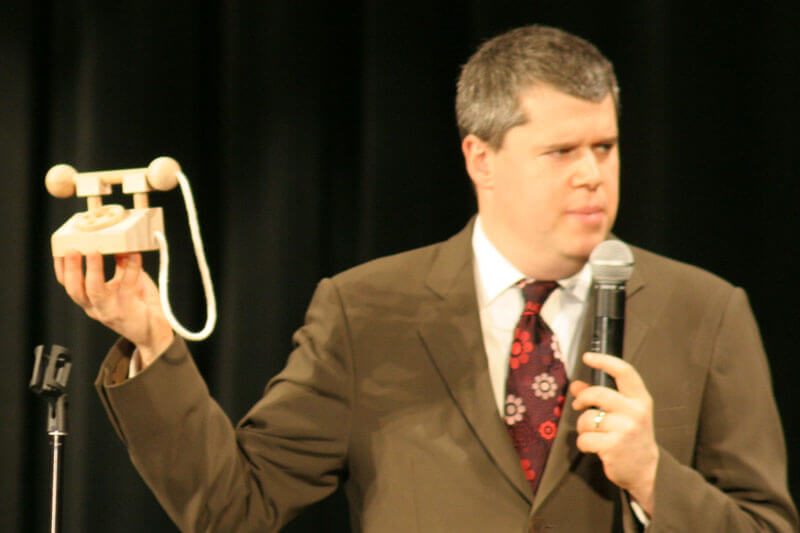

Amid the champagne and canapes at the National Book Awards, Lemony Snicket author Daniel Handler managed to slip in a tonedeaf, racist comment after awarding the prize for the young adult category to Jacqueline Woodson for her book Brown Girl Dreaming. (It had to do with Woodson, a black woman, being allergic to watermelon.) Handler apologized and donated money to the We Need Diverse books campaign, but it was a nasty blot on what should have been a career highlight for Woodson, who wrote about the incident beautifully here.
Amazon v. Hachette
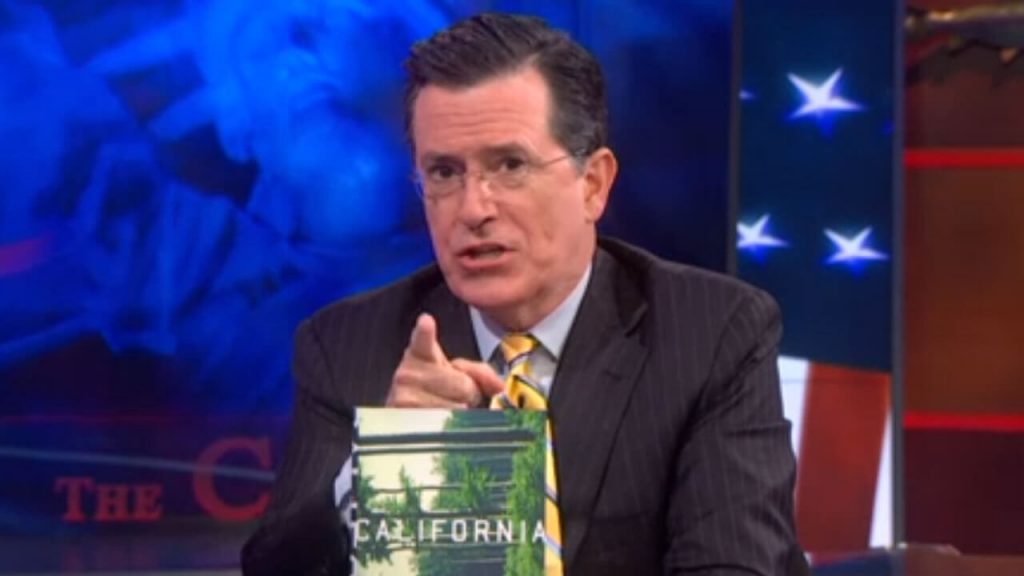

It was another big year in the e-book e-tailing wars, and the biggest battle was between behemoth internet seller Amazon and publishing imprint Hachette. The bitter controversy fought for seven months, starting in May, about the pricing of e-books, leading to Amazon removing pre-order buttons from Hachette-printed books, delaying shipping, and generally acting peevishly. Stephen Colbert got involved. Hachette author James Patterson got involved. Eventually both sides came to an agreement that was vaguely dissatisfying for either side. The whole thing became deeply symbolic of the age of old school publishing vs. self-publishing. The only real winner of the whole thing was California author Edan Lepucki, who got a mush deserved signal boost from Colbert for her novel.
New Republic Implosion
http://twitter.com/losowsky/status/544874450798116864
The maybe-death-but-who-really-knows-right-now of the New Republic has been covered extensively by most everyone in the media, but in case you need a refresher on the course of events, check out this list on The Awl of the Top 40 Hot Takes on the subject.
You might also like 









